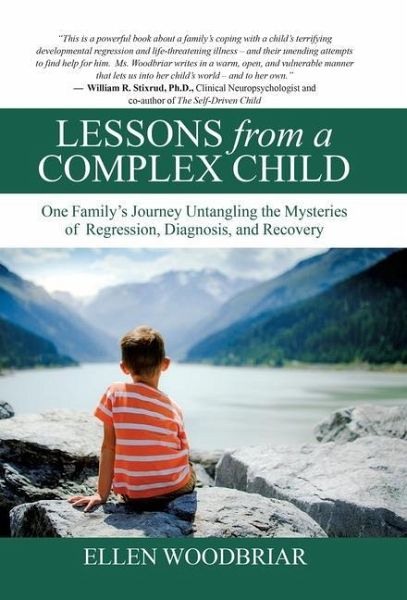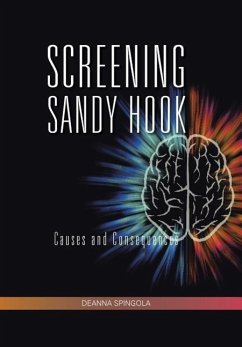
Lessons from a Complex Child
One Family's Journey Untangling the Mysteries of Regression, Diagnosis, and Recovery
Versandkostenfrei!
Versandfertig in über 4 Wochen
35,99 €
inkl. MwSt.
Weitere Ausgaben:

PAYBACK Punkte
18 °P sammeln!
At twenty-nine months, my son Jackson had met all of his developmental milestones. He spoke in full sentences, knew his ABCs and colors, had well-developed fine and gross motor skills, was affectionate, had perfect eye contact, loved to talk, and was extremely social. Six months later, just after Jackson's third birthday, neurologists couldn't rule out that he might have a malignant form of epilepsy, some form of neurodegenerative disorder, have regressive encephalopathy, be autistic, or have a pervasive developmental disorder (PDD). What could possibly have caused the regression he experience...
At twenty-nine months, my son Jackson had met all of his developmental milestones. He spoke in full sentences, knew his ABCs and colors, had well-developed fine and gross motor skills, was affectionate, had perfect eye contact, loved to talk, and was extremely social. Six months later, just after Jackson's third birthday, neurologists couldn't rule out that he might have a malignant form of epilepsy, some form of neurodegenerative disorder, have regressive encephalopathy, be autistic, or have a pervasive developmental disorder (PDD). What could possibly have caused the regression he experienced over a four-month period, the irritability he was exhibiting, the sixty to eighty seizures he was enduring each day, and the autistic-like behaviors he had developed? Although I'm not a physician and don't work in the healthcare profession, I have lived through the regression and recovery of my own child. This experience has led me to form the opinion that, potentially, too many children are being put on the autism spectrum. Some children, like Jackson, with ASD-like symptoms are not autistic and therefore are not receiving the full breadth of intervention that could potentially help them recover. Do I have proof of this? No, because from my experience, and up until this point, there has not been enough research that the medical profession recognizes as reliable made available to the public or to parents like me to identify the root cause of some symptoms. The purpose of my telling this story is not to give anyone, or any family, false hope but, with good reason, to encourage you to leave no stone unturned in treating a medically complex child. It takes passionate determination and tenacity to find underlying and seemingly hidden causes of complex illnesses and to see the journey through to recovery when possible.













